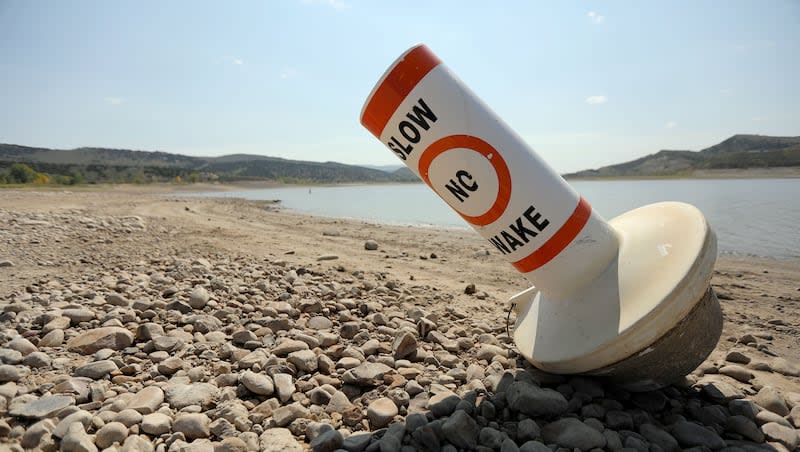Deficits vs. climate: Here’s what Sen. Romney thinks the Budget Committee should prioritize

In order to address crises related to climate change, the United States needs to get a handle on its federal budget deficit, Utah Sen. Mitt Romney told the Senate Budget Committee Wednesday.
During the committee hearing, entitled “Droughts, Dollars, and Decisions: Water Scarcity in a Changing Climate,” members heard from water experts about the fiscal impacts of droughts across the country.
In March, Romney criticized Democratic leadership of the Budget Committee for not focusing on the budget, including the $1.5 trillion deficit, and instead focusing on climate change, saying, “We’ve had 28 hearings before today. Do you know how many of those hearings have been on the budget? Two. Now, I’m concerned about the climate, but 14 of our hearings have been on climate change.”
He renewed that criticism at Wednesday’s hearing.
“I’d hoped that we in (the budget committee) can deal with the $1.5 trillion deficit we have and trying to find some solutions to that,” Romney noted, addressing committee Chairman Sheldon Whitehouse. “Because if we don’t deal with that, we won’t have the resources to be able to deal with emerging crises as they develop as a result of climate change, and economic disruption of various kinds.”
Climateflation
At the hearing, Whitehouse, a Democrat from Rhode Island, said it was important to address climate change in order to prevent increased costs to the government.
“The costs of running out of water can be existential,” Whitehouse said. “Since 1980, 31 droughts have cost the nation an average of $11.6 billion each in physical and economic damages.”
From wildfires to declining agricultural production and the infrastructure needed to make up lost water, crises related to climate change could cost the government even more in the future, Whitehouse said.
“Climateflation flows downstream,” he said.
Adel Hagekhalil, general manager and chief executive officer of the Metropolitan Water District of Southern California, testified in front of the committee on the fiscal burden that droughts have had on the state.
Projects in the works to address water scarcity in California include investing in water recycling, building new reservoirs and updating outdated infrastructure, Hagekhalil said. These projects will total more than $30 billion, just a small fraction of other costs associated with climate change, such as wildfire mitigation.
“The large project costs highlight the need for comprehensive funding solutions across all levels of government — local, state and federal — in order to meet the challenges that we face as a result of climate change and drought,” Hagekhalil said.
Romney on budget committee’s priorities
Romney, who is a member of the Senate Budget Committee, noted that the Intermountain West is seeing “a lot less water” in recent years. Utah is experiencing its “longest period of drought in the last hundreds of years going back to 1500,” the senator said.
“Last couple of winters, we’ve had some relief,” Romney acknowledged. “This last winter snowpack was 114% of normal, but that doesn’t begin to (address) the challenges that we’ve had over a longer period of time.”
Despite what Utah is doing to address the water crisis — Romney noted the state legislature has changed water rights legislation and put in place a trust fund to buy water rights — he said that droughts are still “a real challenge.”
The Utah senator asked one of the witnesses at the hearing, Kevin Richards, a farmer and managing partner at RB Ag, how the agriculture industry can adapt to droughts that have hit the West especially hard.
“Ultimately we need to invest in infrastructure,” Richards told Romney. “And not just to save water but to manage it more collaboratively ... and invest in major projects that completely transform the way that we’re using water.”
Romney then said that though the committee hearing was addressing “an important topic,” he thought the Senate Committee on Energy and Natural Resources “would be the committee that would be focused on this more than (the budget committee).”

